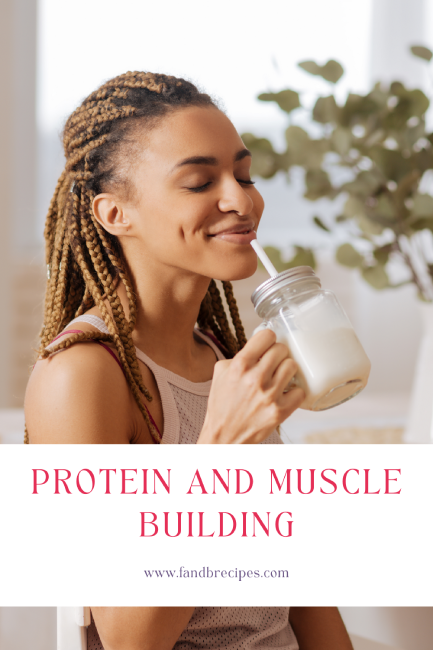Protein and Muscle Building
Protein is widely recognized as a fundamental nutrient essential for muscle building and repair. Whether you’re an athlete, a fitness enthusiast, or simply someone looking to improve their physique, understanding the role of protein in muscle development is crucial. In this article, we will delve into the science behind protein’s importance, explore optimal protein intake for muscle building, and discuss various protein sources and their benefits.
The Role of Protein in Muscle Building
Muscles are primarily composed of protein, making them an integral part of the muscle-building process. When we engage in physical activity or resistance training, muscle fibers experience microscopic damage, leading to muscle protein breakdown. This breakdown initiates a process called muscle protein synthesis, where the body repairs and rebuilds the damaged muscle tissue, ultimately resulting in muscle growth.
Healthy high protein meals are made up of amino acids, commonly referred to as the “building blocks” of protein. Essential amino acids, which cannot be synthesized by the body, must be obtained through dietary sources. These essential amino acids play a critical role in stimulating muscle protein synthesis and promoting muscle recovery.
Optimal Protein Intake for Muscle Building
Determining the ideal protein intake for muscle building depends on various factors such as age, sex, body weight, training intensity, and goals. While individual requirements may differ, research suggests that consuming approximately 0.6 to 0.9 grams of protein per pound of body weight per day is generally sufficient to support muscle growth in most healthy individuals. However, athletes or those engaged in intense resistance training may benefit from higher protein intakes within the range of 0.7 to 1.2 grams per pound of body weight.
Timing protein consumption around workouts is crucial for maximizing muscle protein synthesis. Consuming a protein-rich meal or supplement within two hours of exercising can enhance the body’s ability to repair and rebuild muscle tissue. Additionally, distributing protein intake evenly throughout the day, rather than consuming large amounts in a single sitting, promotes sustained muscle protein synthesis.
Protein Sources for Muscle Building
When it comes to protein sources, variety is key. Different protein-rich foods offer unique amino acid profiles and additional nutrients beneficial for overall health. Here are some popular protein sources for muscle building:
- Lean Meats: Chicken, turkey, beef, and pork are excellent sources of high-quality protein. They contain all essential amino acids and are rich in vitamins and minerals necessary for muscle function.
- Fish: Salmon, tuna, and other fatty fish are not only high in protein but also provide omega-3 fatty acids. These healthy fats possess anti-inflammatory properties and can support muscle recovery.
- Eggs: A complete protein source, eggs contain all essential amino acids. Additionally, they are rich in vitamins, minerals, and choline, which aids in muscle function.
- Dairy Products: Milk, yogurt, and cheese are rich in casein and whey proteins. Casein protein provides a slow and steady release of amino acids, making it ideal for overnight muscle repair. Whey protein, on the other hand, is rapidly digested and absorbed, making it an excellent choice post-workout.
- Plant-Based Proteins: For individuals following a vegetarian or vegan diet, plant-based protein sources such as legumes, tofu, tempeh, quinoa, and soy products can be incorporated. While these sources may lack some essential amino acids, combining different plant-based protein sources can provide a complete amino acid profile.
Supplements for Muscle Building
In addition to whole foods, protein supplements can be an effective way to meet protein needs for muscle building. Whey protein powder, derived from milk, is one of the most popular and widely researched supplements. It is easily absorbed and provides a high concentration of essential amino acids. Other protein powders such as casein, soy, and pea protein offer alternatives for those with specific dietary preferences or restrictions.
It is essential to note that while protein supplements can be convenient, they should not replace whole food sources entirely. Whole foods offer additional nutrients, fiber, and phytochemicals that contribute to overall health.
In Conclusion
Protein plays a vital role in muscle building and repair, making it a crucial nutrient for individuals aiming to enhance their physique or improve athletic performance.
Understanding the optimal protein intake, timing, and variety of protein sources can help individuals maximize their muscle-building potential.
Whether through whole food sources or supplements, incorporating sufficient protein into a well-balanced diet is essential for achieving and maintaining optimal muscle growth and strength.




